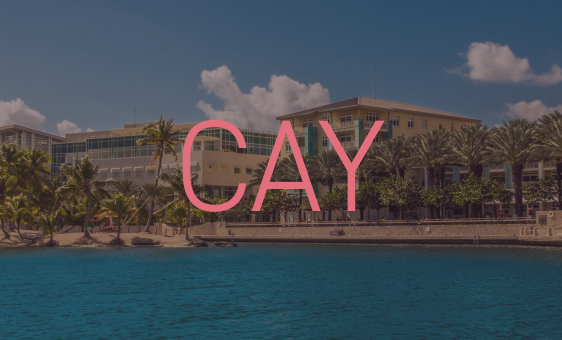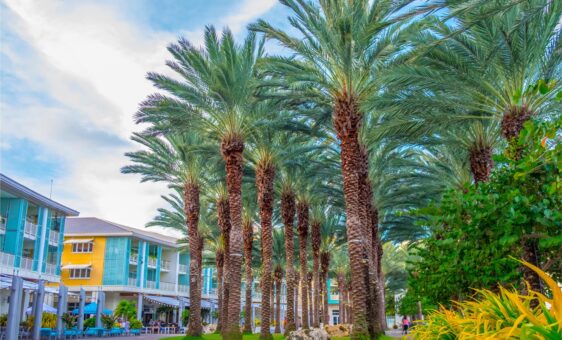THE LATEST – CAYMAN REAL ESTATE 2023 – SECOND QUARTER MARKET TRENDS
Cayman’s real estate market remains robust in 2023, with steady demand for both residential and commercial properties. Key factors contributing to this stability include:
- Steady Economic Growth: The Cayman Islands have maintained a strong and stable economy, driven by the financial services sector, tourism industry, and a favorable business environment. Historically, Cayman real estate has remained stable over the last decade and soared to record high sales since the height of the COVID-19 pandemic in 2020.
- Tourism and Expat Community: The islands’ thriving tourism industry and a growing expat community contribute to the demand for investment rental properties.
- Tax Advantages: The Cayman Islands offer a tax-efficient environment with no ongoing property taxes[1], capital gains tax, or income tax. This makes real estate investments in the region even more attractive to international investors.
- Political and Economic Stability: The Cayman Islands have a history of political and economic stability, closely linked with its status as a British Overseas Territory, which is crucial for maintaining investor confidence.
- Leading Offshore Financial Services Sector: With its multi-decade reputation as a leading provider of services to the financial services sector, the Cayman Islands is a very attractive jurisdiction for banks, trust companies, law firms and insurance service providers (to name a few), meaning that international organisations and their high performing professionals continue to relocate to, and maintain a presence within the islands, thus increasing the demand for commercial and residential space. This in turn drives investment in critical infrastructure such as transport and healthcare in addition to ancillary amenities, further increasing the desirability of the jurisdiction.
- Airlift: The proximity of the Cayman Islands to North America, together with recent expansion to the Owen Roberts International Airport and a growing availability of direct flights, means that travelling to the Cayman Islands has never been more convenient.
The local real estate market has continued to produce strong sales and price results over the last twelve months. However, the second quarter of 2023 has shown that property values are remaining stable despite increased carrying costs (insurance premiums and financing costs primarily), albeit a reduction in the speed of transactions seen during the post-pandemic boom. These increased costs, which are not unique to the Cayman Islands, have primarily impacted the low-to-mid end of the market where in respect of properties for sale below US$2M and sales activity in general, year to date deal volume has decreased by 26.43% in comparison to 2022[2].
While increased costs undoubtedly impact many, decreased deal volume can also be explained by the low supply to high demand ratio for Cayman Islands real estate – the post-pandemic boom, which when coupled with longer lead times for completing new development projects as a result of global supply chain issues, has led to an imbalance of willing sellers and willing buyers. For example, as of July 1st 2023, 1,952 active listings were reported on the market (this figure includes those that were or are under offer)[3], which is 6.79% fewer than in July 2022[4]. The continuation of imbalanced supply and demand underpins recent price performance in the market.
Demand for commercial property has also been relatively strong, with the jurisdiction’s largest developers in this space either recently completing or breaking ground on new projects. Proposed revitalisation of the capital, George Town, received a significant boost following the announcement of One GT, a new mixed used tourism, residential and commercial development, which is a first for the area.
LEGISLATIVE FRAMEWORK
The Cayman Islands has maintained a centralised land register based on the “Torrens” system of registration. This results in a relatively safe, secure and predictable way of protecting title and largely avoids the need for expensive title insurance and lengthy title investigations compared with some jurisdictions which, when coupled with a sophisticated market of real estate and legal professionals, helps underpin investor confidence and reduce transaction costs.
In addition, several options are available to organise larger developments into a cohesive whole – one can either two-dimensionally or three-dimensionally subdivide a large parcel into several smaller parcels or stratify a development so as to provide for a vehicle to deal with collective interests, in each case imposing a framework of easements, covenants and/or (in the case of strata) by-laws so as to grant rights and impose obligations (including in respect of common areas). Three-dimensional subdivision, known as volumetric subdivision, is a relatively new legal mechanism perfectly suited to governing large multi-use developments (and/or dealings in airspace). As the nature of projects in the Cayman Islands continues to evolve, this more flexible and sophisticated mechanism is increasingly being used.
The Cayman Islands Land Registry continues to work to implement e-conveyancing, and plans to implement a number of legislative initiatives to further streamline the land registration process. This is coupled with additional longstanding proposals by the Cayman Islands Government to modernise the 1997 Development Plan, and new proposals to enhance the protection afforded to borrowers as regards enforcement of borrowing secured by Cayman Islands real estate.
A recent significant development of interest to the international community would be the positive strides that Cayman has made to be removed from the Financial Action Task Force (FATF) “grey list”. After a meeting in Paris in June 2023, the FATF confirmed that the Cayman Islands would be eligible for removal from the list after performing a final visit to verify ongoing progress of the action plan that was set out by FATF. The task force met with government officials, regulatory authorities, and private sector entities to gain insights on the jurisdiction’s robust regulatory framework.
SEVEN MILE BEACH
Any commentary on Cayman Islands real estate would be incomplete without specific attention being drawn to the highly desirable Seven Mile Beach. Famed for its sparkling waters and coral sands, this award-winning[1] shoreline is home to some of the Caribbean’s most luxurious properties and attracts travellers from all over the world.
As such, premium seafront condominiums continue to sell quickly at increasing prices, and resorts continue to report strong RevPAR performance.
Lacovia
The US$350M Seven Mile Beach Lacovia re-development has obtained the official green light and works are to commence imminently. A leading engineering group with a track record of constructing some of the most challenging and complex projects in the world will oversee what is anticipated to be one of the newest and most luxury developments to hit the Seven Mile Beach are in the last decade.
The Lacovia development will encompass ultra-high-end modern luxury architecture with fourteen floor plans ranging from three to eight-bedroom apartments all designed by Swedish architects, OOAK. Sales for the development have been strong with a select few remaining units priced between approximately US$5.5m-US$30m.
Westin Grand Cayman Resort & Spa
The owners of the Westin Grand Cayman Resort & Spa have recently been granted planning permission to expand the resort to include a new ten-story hotel block with 234 guest rooms, a state-of-the-art conference center and a suite of new restaurants, wellness facilities, pool, and rooftop bar. The existing resort was built between 1994 and 1999 and currently includes 343 guest rooms.
The Watermark
The Watermark is the latest ultra-high-end residential project by one of the jurisdictions most established developer of premium residences, which is anticipated for completion in 2024. The development brings top-notch amenities from the International Property Award-winning team behind the existing Watercolours development and is set to include luxuries such as a full-service spa, beachfront conservatory and wine storage lockers. The remaining units available are listed for approximately US$9.1m-US$14m.
Grand Hyatt Grand Cayman
This new five-star resort is under construction on the south end of Seven Mile Beach with an estimated completion in 2025. The Grand Hyatt is slated to be Cayman’s second five-star resort after the Ritz-Carlton Grand Cayman. The resort promises to feature multiple pools, an ocean lagoon, 6 restaurants, spa and fitness facilities and a retail shops. Remaining available residences range from studio suites starting at US$950,000, up to three-bedroom spacious apartments topping out at around US$8M.
Hotel Indigo & Hampton by Hilton
Cayman’s largest developer, Dart, is approaching completion of the first Hotel Indigo in the jurisdiction. Hotel Indigo sits under the IHG hotel chain umbrella and promises to offer a unique boutique hotel experience with modern amenities across the 282 guest rooms.
Dart also recently completed extensive renovations and rebranding of the Hampton by Hilton Grand Cayman, the first Hilton branded hotel to become operational in the Cayman Islands.
Kailani, Curio Collection by Hilton
Leading developer of Cayman Islands real estate, NCB Group, continues construction on the Kailani, Curio Collection by Hilton, a boutique wellness resort and residences located on the south end of Seven Mile Beach. This project is the first of its kind in the jurisdiction with significant emphasis being placed on sustainability and wellness.
Several other premium residential and tourism developments are underway or have received approval, located on or near to Seven Mile Beach. Arguably the most exciting of which is the Mandarin Oriental Grand Cayman, an expansive luxury resort and residences. This project attracts significant attention due to its size, promised quality and its status as the first Mandarin Oriental that is to be launched in the Cayman Islands.
The picture painted by the many examples that can be cited is one of confidence, growth and increasing sophistication in and of Cayman Islands real estate.
CAYMAN AS AN INVESTMENT IN 2023
Luxury Residential Real Estate
In two separate 2023 Global Wealth Reports by Knight Frank and Boston Consulting Group, Cayman was included as a notable jurisdiction for the annual change in luxury residential prices in 2022 as well as a top 10 private banking booking center, respectively[2]. Knight Frank reported that the Cayman Islands had a 10% increase in the annual change in luxury residential prices in 2022 putting Cayman on par with St. Moritz, Cannes and Verbier (all also recording 10% increases)[3]. On the face of it, investors may chalk this up to a 10% luxury investment hike in potentially a sun or ski destination, however it can be agreed that this report further solidifies Cayman real estate assets as strong investments. Additionally, cross-border wealth rose by 4.8% in 2022, reaching $12 trillion globally[4]. This cross-border investment pushed Cayman into the ninth largest booking center globally amassing $0.5 trillion in 2022[5].
Investing in Cayman Islands real estate can also facilitate qualification for permanent residence, naturalisation and even Caymanian status, which makes investment attractive for those wishing to reside permanently or semi-permanently in the jurisdiction.
Commercial Real Estate
Within the two-year span since the COVID-19 pandemic, commercial real estate is in high demand in Cayman despite the transitions in workplace environments globally where working from home became and remain for many the norm.
An early 2023 report from Knight Frank revealed that real estate was playing a crucial role in supporting business transformation,[6] which aligns with the increasing demand for Class A office space in the Cayman Islands. In the urban town of Camana Bay, located on 685 acres along the Seven Mile Beach corridor, is located 858,000 square feet of this prime Class A office space. Much of the demand stems from existing players looking to expand business in Cayman as well as new entrants seeking to establish a place of business in the jurisdiction.
The Cayman Islands Monetary Authority has reported that the number of registered funds within the Cayman Islands has grown to 29,092 in quarter one of 2023[7]. This transpires to a 168% increase since 2019[8]. In terms of these statistics relating to Cayman as an investment opportunity – more businesses on a multitude of spectrums have flourished, including fund administrators, fund governance providers, law firms, and audit firms. Additional investment has also arisen from the global regulatory requirement for companies to have a physical presence in the jurisdiction in which they are operational.
Notable Laws
Notable areas of the law that investors should consider include the Registered Land Act (2018 Revision), the Development and Planning Act (2021 Revision), the Strata Titles Registration Act (2013 Revision), the Stamp Duty Act (2019 Revision), the Immigration Act (as revised) and the Immigration (Transition) Act (2022 Revision). However, there are other laws that may be applicable, depending on the specifics of the transaction (such as the type of purchaser, the type of property and what activities the purchaser intends to carry out from the property).
There are generally no restrictions on foreign ownership of real estate in the Cayman Islands, although certain requirements may apply to different types of purchaser and use (such as the carrying on of business from within the jurisdiction).
It is always advisable to consult with a professional at the outset of a transaction in order to ensure that the investment would meet objectives and so as to understand applicable legal requirements.
Investment Structures
Cayman Islands companies and foreign companies are the most common entity types and acquisition structures that investors use for real estate investment in Cayman.
Considering that the Cayman Islands is a no-direct taxation jurisdiction, and real estate investment activities can be conducted though different structures, foreign investors are often select their investment model based on factors not driven by Cayman regulation.
First published in Beaumont Capital Markets, International Real Estate Finance & Investment Review 2023/24
[1] Seven Mile Beach has been named one of the “Ultimate Beaches” in the region by Caribbean Travel + Life, the 4th “Best Beach in the Caribbean” by Trip Advisor, and the 12th “best beaches” in the world by MSN. Source: Cayman Islands Department of Tourism
[2] Source: Knight Frank – The Wealth Report 2023, BCG Wealth Report 2023 – Resetting the Course
[3] Source: Knight Frank – The Wealth Report 2023
[4] Source: BCG Wealth Report 2023 – Resetting the Course
[5] Source: BCG Wealth Report 2023 – Resetting the Course
[6] Source: Knight Frank Cresa Corporate Real Estate Index
[7] Source: Cayman Islands Monetary Authority
[8] Source: Cayman Islands Monetary Authority
[1] The Cayman Islands Government imposes a one-off stamp duty charge for real estate transactions (an ad valorem rate that depends on the nature of the transaction) and minor registration fees. However, there are no ongoing real estate taxes.
[2] Source: Cayman Islands Real Estate Brokers Association (“CIREBA”)
[3] Source: CIREBA
[4] Source: CIREBA
Locations
Services
Corporate, Real Estate Finance, Property, Commercial Property, High Value Residential Property, Residential Property

































